The EOS 5D Mark IV, with its well-rounded and advanced shooting capabilities, high dynamic range and its mobility, proves to be a trustworthy companion for shooting seascapes. Read on to find out more about why seascape photographers should make it their camera of choice. (Reported by: Minefuyu Yamashita)
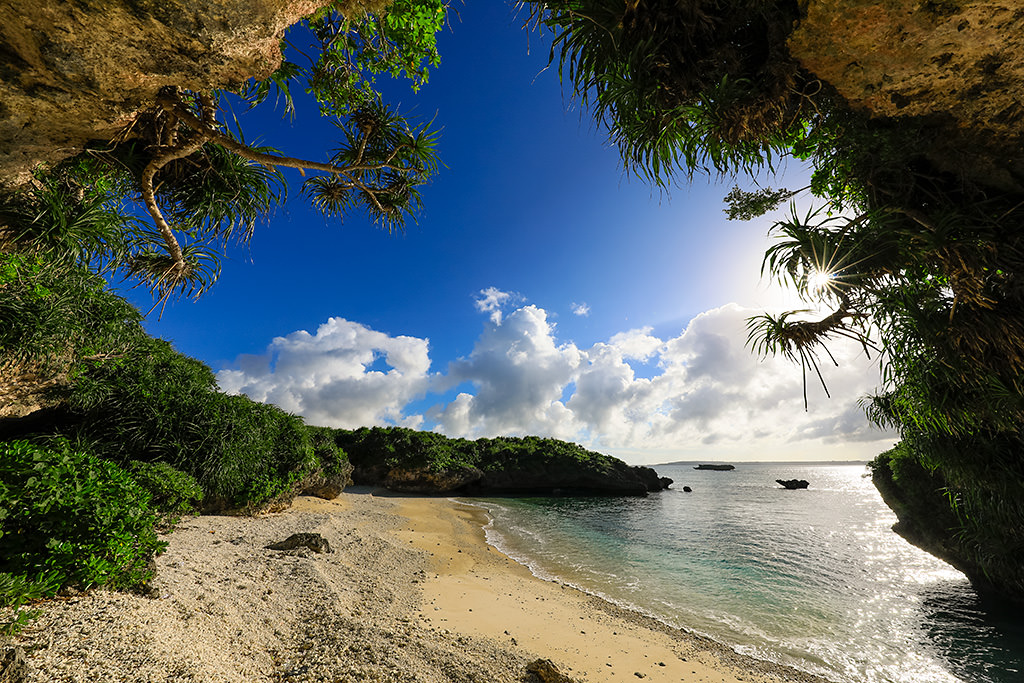
Reason 1: The approx. 30.4MP resolution and 7 fps continuous shooting speed lets you sharply depict the form of waves
On the EOS 5D Mark IV, continuous shooting is possible at 7 frames per second (fps) and at an image resolution of approximately 30.4 megapixels. This allows you to obtain clear and beautiful shots even of fast-moving objects, such as this one of a wave, right down to the spray.
Use continuous shooting in combination with a fast shutter speed for best results! For more tips on how to capture waves, check out:
Step-by-step Guide to Capturing Splashing Waves at Fast Shutter Speed Settings


EOS 5D Mark IV/ EF8-15mm f/4L Fisheye USM/ FL: 15mm/ Aperture-priority AE (f/9, 1/1,000 sec, EV±0)/ ISO 200/ WB: Daylight
A wave that was previously captured with single shooting. The 5D Mark IV boasts of a continuous shooting speed of up to 7 fps, which allows you to comfortably capture the changes in the beautiful crests of waves.
Reason 2: The possible high ISO speeds allow you to capture the texture of waves at night just as you envisioned
While walking along a sandy beach on a night with a full moon, I am always impressed by the bright world of the night. That said, because it is moonlight, it used to be necessary to use longer exposure times in order to express the nightscape while suppressing noise, which meant that the glistening state of the waves and surface of the sea in the moonlight would fail to emerge in my shots. However, the EOS 5D Mark IV, with its superior high ISO speeds, allows you to adjust the shutter speed in a way that makes your shots taken under moonlight appear as if they were taken under the midday sun. This feature is sure to have a huge impact and open up numerous possibilities for new artistic expressions.

EOS 5D Mark IV/ EF11-24mm f/4L USM/ FL: 11mm/ Aperture-priority AE (f/5.6, 3.2 sec, EV+2.0)/ ISO 4000/ WB: Tungsten Light
Taken on a night with a full moon, while ensuring that the textures of the waves and the surface of the sea were captured. For this shot I selected ISO 4000, but I personally feel that it would have been possible to use between ISO 6400 to ISO 12800 as noise would not be an issue.
Reason 3: With a wide dynamic range, even high contrast landscapes can be depicted beautifully
One thing I was impressed with when using the EOS 5D Mark IV was the wide dynamic range. Even in shoots with intense backlight, the highlighted area surrounding the sun is connected to the blue sky with a soft and natural colour tone, without blacking out the shadow area. During RAW image processing, I was surprised to find that even after zooming in on the shadow area to the extreme, there was minimal noise and the fine details remained visible in the dark area.
The colours produced by the EOS 5D Mark IV made for a deeply calming image. This, coupled with the wide dynamic range and high definition image quality, allowed me to depict an ambience nearer to that which I saw with the naked eye. When it comes to seascape photography, the benefits gained from improving the dynamic range are significant, fuelling my desire to tackle new ways of depiction even in scenes with overly strong contrast under strong sunlight.
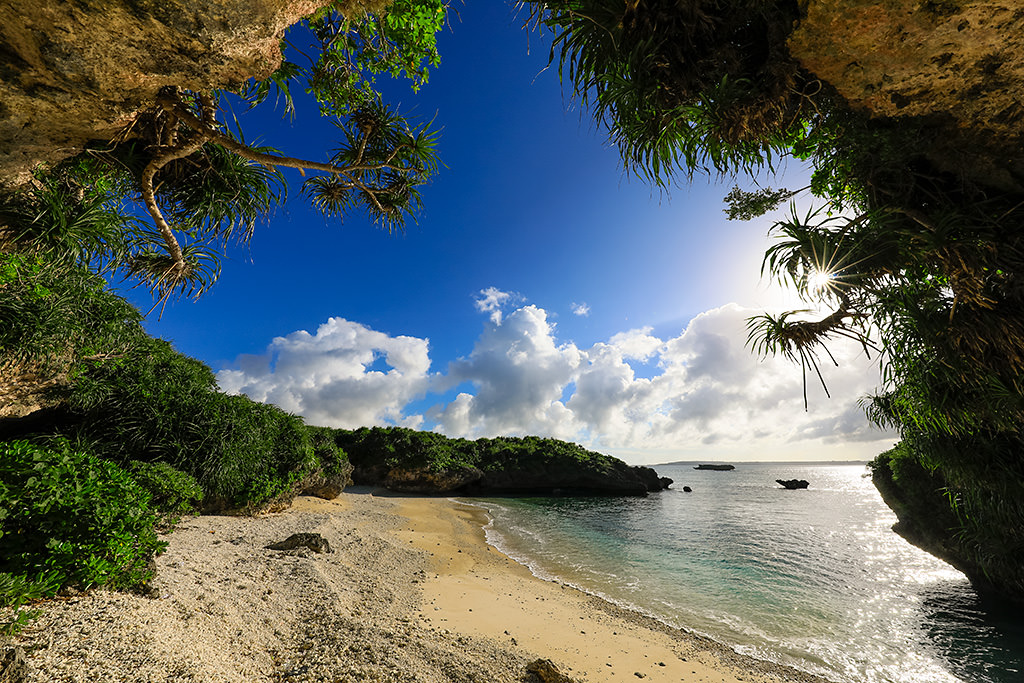
EOS 5D Mark IV/ EF11-24mm f/4L USM/ FL: 11mm/ Aperture-priority AE (f/16, 1/250 sec, EV-1.0)/ ISO 200/ WB: Cloudy
Photograph of a difficult scene with strong contrast. I took a shot that retained the sparkle of the sea and tone of the sky, without blacking out the shadow area formed by the rock.
Reason 4: The built-in GPS makes it a breeze to track your shooting location even when at sea
Because there is an absence of landmarks when photographing at sea, it used to be difficult to recall where your shooting location was. However, as the first camera in the EOS 5D series to be equipped with built-in GPS, the 5D Mark IV lets you append location information to the image data. And when you select such images in the accompanying Map Utility software, your shooting locations will be displayed on a map. The series of operations to do so is very simple, so all you need to keep in mind is the battery consumption and you can devote yourself to your shoot for the rest of the time.

EOS 5D Mark IV/ EF16-35mm f/2.8L II USM/ FL: 20mm/ Aperture-priority AE (f/11, 1/200 sec, EV±0)/ ISO 200/ WB: Auto
Taken to the north of a deserted island made of white sand. On the map, the location information of this shot can be distinguished from the location information of a shot taken south of this small island, which is reassuring as I am now able to determine my shooting locations even in scenes that lack clear landmarks.
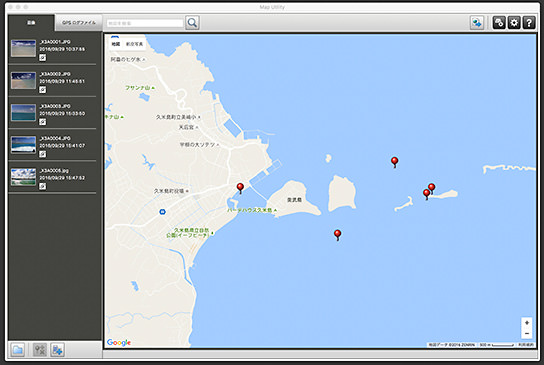
The shooting location can be quickly identified
When photographing while traveling on a boat in the sea, it used to be difficult to accurately ascertain your shooting location, but thanks to the in-built GPS, this is no longer an issue. I am extremely grateful for this feature as it lets me record my movements without even having to think about it while travelling around a lot with my camera.
Reason 5: Tack-sharp focus can be achieved seamlessly with Touch AF, even in situations where it was previously difficult to focus
The touch panel on the rear LCD monitor lets you directly and quickly adjust the focus when in Live View. Image plane phase difference detection autofocus (AF) supports AF across a wide area covering about 80 percent of the screen through the use of Dual Pixel CMOS AF, which provides even faster AF performance than contrast AF. Outdoor photography always involves movement of some kind due to factors such as light and wind, which means that you need to move fast to capture picture-perfect moments. Touch AF helps you to focus quickly so that you can release the shutter faster.

EOS 5D Mark IV/ EF24-70mm f/2.8L II USM/ FL: 70mm/ Aperture-priority AE (f/2.8, 1/320 sec, EV+0.3)/ ISO 400/ WB: Daylight
I touched the screen to focus on the stamen of a hibiscus floating on the water. Previously, I had to proceed to the magnifying frame of the point I was aiming at. However, I can now skip this step to rapidly take a shot of the subject even if it is moving slightly.

Select AF points almost instantly
When using AF in Live View, you can focus anywhere within the range, regardless of where the AF point is located. When using AF in the viewfinder, a great benefit is the ability to focus instantaneously with ease by simply touching the screen even on a point that is outside the range.
For more on how the EOS 5D Mark IV fares in landscape photography, check out:
5 Reasons Why the EOS 5D Mark IV is Ideal for Landscape Photography
Receive the latest updates on photography news, tips and tricks by signing up with us!
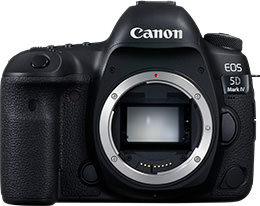
EOS 5D Mark IV

EF8-15mm f/4L Fisheye USM

EF24-70mm f/2.8L II USM

EF11-24mm f/4L USM

EF16-35mm f/2.8L II USM
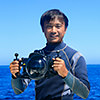
Born in 1979 in Aichi. After gaining experience in jobs such as interior and graphic designing, Yamashita became an independent photographer in 2011. His works have been used in many calendars.

A monthly magazine that believes that enjoyment of photography will increase the more one learns about camera functions. It delivers news on the latest cameras and features and regularly introduces various photography techniques.
Published by Impress Corporation

































